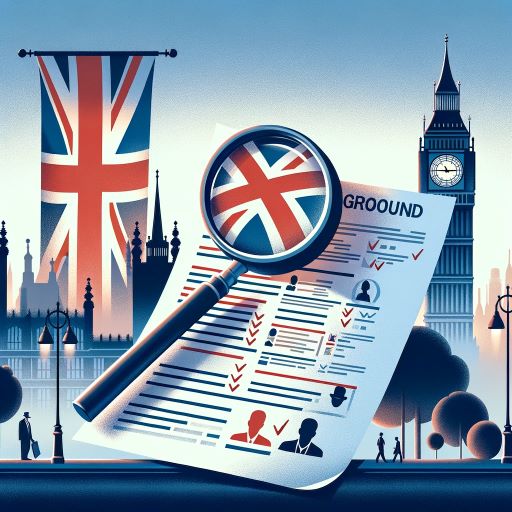

Criminal record checks may involve different levels of scrutiny like basic, standard, or enhanced checks. Reference checks help verify honesty and assess job performance objectively. Social media checks are common and impact hiring decisions. Vital right to work checks are important to confirm legal work rights and minimize risks.
In wrapping up, investing in preemployment screening is essential for safeguarding your organization's integrity and making smart hiring decisions. By incorporating advanced screening services and tailoring your strategies to your specific needs, you can stay ahead in the hiring process and build a reliable workforce. Remember to conduct thorough background checks, utilize compliance checks, and consider social media vetting to make sure you're making informed and compliant hiring decisions.
In preemployment checks, DBS plays a vital role in examining candidates' criminal backgrounds for roles involving vulnerable individuals or high trust. It helps determine their suitability by providing details on spent and unspent convictions for informed choices. Understanding the purpose and eligibility of DBS checks is essential for compliance with legal standards and avoiding mistakes.
Employers cover costs and require different types of checks based on role requirements. DBS checks involve various stages like verification and authentication, aiding in making safe hiring decisions. Get a deeper insight into the eligibility, process, and significance of preemployment screening.
Employers depend on DBS checks to evaluate candidates' criminal history and determine their suitability for specific roles, especially those involving vulnerable individuals or high levels of trust. These checks are vital in safeguarding vulnerable groups, such as children and vulnerable adults, from potential risks posed by individuals with a history of criminal behaviour.
DBS checks provide detailed information on an individual's spent and unspent convictions, cautions, reprimands, and final warnings, enabling employers to make informed decisions about hiring. For roles that entail handling sensitive information or require a high level of trust, enhanced DBS checks are mandatory.
In the UK, the duration of pre-employment screening checks can vary significantly depending on the type and depth of the checks being conducted, as well as the industry and specific job role requirements. Generally, basic checks, such as identity verification and employment history, can be completed within a few days to a week. More comprehensive checks, including criminal record checks (DBS checks), credit history, and higher-level security clearances, may take longer.
An employee background check can encompass a wide range of verifications and screenings to assess a candidate's history and suitability for a position. The specific elements included in a background check may vary depending on the job, the industry, and the employer's requirements. Common components of an employee background check include:
Identity Verification: Confirms the candidate's identity through government-issued documents like passports or driver's licenses.
Employment History Verification: Checks the candidate's previous employment, including positions held, dates of employment, reasons for leaving, and rehire eligibility.
Education Verification: Confirms the candidate's educational degrees, diplomas, and certificates from colleges, universities, and other educational institutions.
Criminal Record Check: Searches for any criminal convictions, cautions, reprimands, or warnings. In some countries, this is known as a Disclosure and Barring Service (DBS) check in the UK or a criminal background check in the US.
Credit History Check: Reviews the candidate's credit history, which can be relevant for positions involving financial responsibilities. This check typically includes looking at credit scores, outstanding debts, bankruptcies, and financial mismanagement.
Reference Checks: Involves contacting previous employers, colleagues, or academic references to gain insights into the candidate's work ethic, abilities, and behavior.
The primary purpose of conducting DBS checks is to assist organizations in appraising the criminal record history of individuals applying for positions that involve a duty of care or responsibility towards others. By incorporating DBS checks into the preemployment screening process, employers can create a safer and more secure working environment for all employees.
Eligibility for DBS checks hinges on the specific role requirements, with enhanced checks being mandated for positions involving vulnerable groups such as children or adults at risk. The Code of Practice, as per section 122(2) of the Police Act 1997, provides essential guidelines for the fair and lawful use of information obtained through DBS checks. By adhering to the Code of Practice, employers guarantee the proper handling and storage of disclosed information, maintaining legal standards and safeguarding sensitive data. Failure to comply with the Code of Practice can lead to the refusal of a DBS certificate issuance, underscoring the critical importance of following these guidelines.
Eligibility Code of Practice

Enhanced checks for roles with vulnerable groups Guidelines under Police Act 1997
Specific role requirements determine eligibility Fair and lawful use of disclosed information
Compliance ensures legal standards Proper handling and storage of data
Noncompliance may lead to certificate refusal Importance for organizations using DBS checks
Following the Code of Practice is not just a formality but a necessary step to uphold legal standards and safeguard the safety of vulnerable groups within the workforce. Understanding the registration process and costs of DBS checks is essential for both employers and individuals undergoing preemployment screening.
Registering for DBS checks is a necessary step for individuals seeking employment in roles requiring background screening. To initiate this process, employers typically request DBS checks through the official DBS website. The costs associated with DBS checks can vary depending on the type of check needed. Basic checks are generally less expensive compared to Enhanced checks.

Employers may choose to either cover the expenses of DBS checks for their employees or require candidates to bear the costs themselves. Once registered, employers gain access to online systems that facilitate the submission of DBS check requests and monitoring the application progress. The DBS provides clear guidance on the registration procedure and associated costs to guarantee that employers comply with legal requirements.
When classifying DBS checks, the level of disclosure varies based on the specific requirements of the role being evaluated. Different types of DBS checks cater to varying levels of disclosure to guarantee that employers have the necessary information to make informed hiring decisions.
Here are the main types of DBS checks:
4. Basic DBS Checks:
• Highlight unspent convictions and conditional cautions, providing a foundational overview of an individual's criminal record.
5. Standard DBS Checks:
